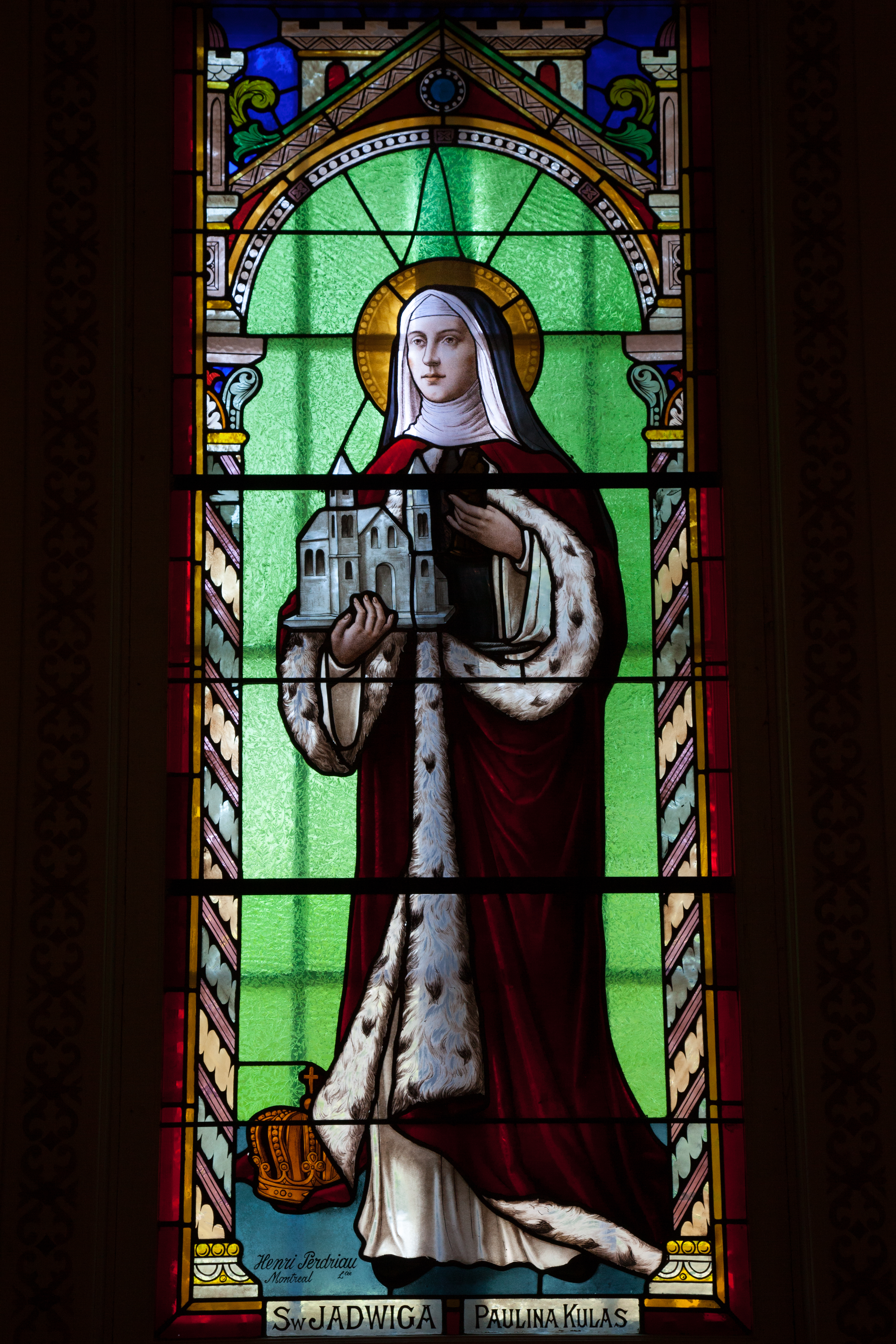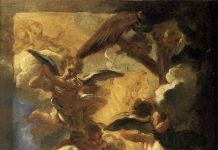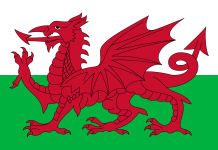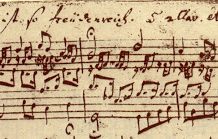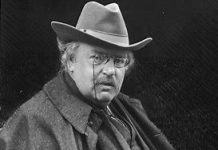Our parish celebrated its hundredth anniversary last Sunday. It was a big to-do. The bishop came for Mass, there were ten priests, thirty altar servers, incense, bows, bells, special crowns for the Icon of Our Lady of Czestochowa and several photographers weaving their way in and out of the crowd of people. Some came in costumes originating from the “old country” which were bursting with beautiful bright embroidery and old polish customs. The bells were rung a hundred times. There were a hundred candles, lit by parishioners and assembled round the baptismal font—one for each year that brought new members into God’s family by baptism.
And it hit me pretty hard. We’re not our own little islands, you know. We’re so often tempted, in this isolationist age, to think that we stand alone within ourselves—that we came to be without anyone’s help and will continue to be without anyone’s help. We’re constantly tempted to think that we are who we are not because of who came before us, but because the world began with us. With me. And that when I die, the whole world will end.
Yet even shallow glimpses at history remind us that this is simply untrue. Sure OUR world began when we were born, but THE world didn’t, and it (likely) won’t end when we die. Whatever and whoever we are has been brought up and out from the ages upon ages that have come before us. We might have blue eyes because someone in our ancestry had blue eyes. Or we may have the Irish temper or the inability to do a tongue-roll, not because we decided at age three it would be so, but rather because these traits came to us at conception—because there were people before us who possessed these traits, and people before them, and people before them—and God orchestrating the whole thing. Caryl Houselander put it beautifully in her book Reed of God when she said,
Very seldom do we think about the mystery of all the years and all the people and all the gathered memories, both of individuals and races, which have made us individually what we are. Our life has been given to us from generation to generation, existing in each age in the keeping of other human beings, tended in the Creator’s hands, a little flame carried through darkness and storm, burning palely in brilliant sunlight, shining out like a star in darkness, life in the brave keeping of love given from age to age in a kiss.
And it’s not just our physical traits. Our spiritual life and faith has been passed on to us from ages and generations as well. The good bishop during his homily wondered about what life must have been like for those early Catholics a hundred years ago. What was it within the people that made them not only ask for, but also build this church of St. Hedwig’s and keep it alive? It was the desire for the Lord God burning within them, he said, and our Heavenly Father’s burning desire for them as well. It was also the Lord God’s desire for us, right now, a whole century later, and for everyone in between. There is no time in heaven. The Holy Trinity sees all things in one eternal now and so God thirsts eternally for all people of all time. The actions of that handful of rough settlers one hundred years ago, and of the subsequent generations that have come and gone, has paved the way for those within this parish (i.e. me) to receive Jesus in the holy sacraments—in Confession, Communion, Confirmation, and Matrimony, in this place right now, in 2014. Their faith has, figuratively and literally, become our faith. It’s staggering to contemplate.
There’s a film out called Monuments Men which is based on a true story of a group of soldiers, men and women, who fought during World War II to reclaim the art that had been stolen by Hitler and the Nazis, much of which Hitler had planned to destroy. (Spoiler alert!): The film briefly tells the story of one soldier who gives his life attempting to save one particular sculpture of the Madonna and Child because it meant so much to him. At the end of the movie, another soldier is briefing some higher-ups on the successes and failures of the mission and they ask him, “Do you think that thirty years from now anyone will look at that [sculpture] and remember the man who died for it?” The scene fast-forwards to that same (now elderly) reporting soldier walking his grandchild past the Madonna and Child, and he answers, “Yes. I do.”
I will remember, too. Seventy years ago, on 6 June, Canadian troops captured both Normandy and Juno Beaches thus leading the allied advance in some defining moments of World War II. So many people fought and died so that we may live as we wish, and it is just a further reminder to me that everything we have, whether it be the art or architecture around us, the culture in which we’re absorbed, or, most importantly, the Faith of our Fathers, is a gift from God which comes to us through the generations of life that have come before us. We are truly and richly blessed. We’d do well to remember that, and think about what our own legacy will be when we leave this earth.

